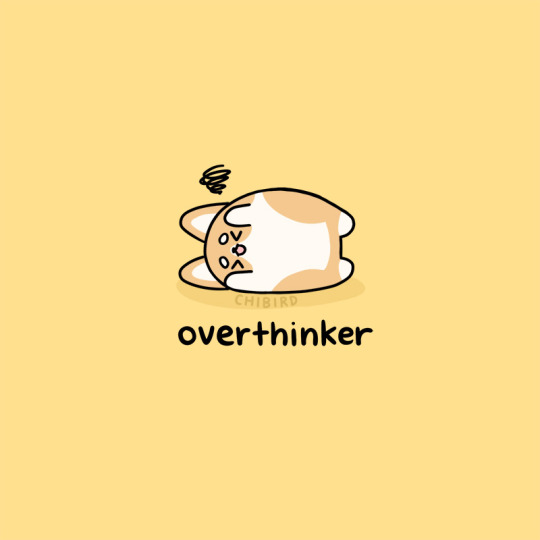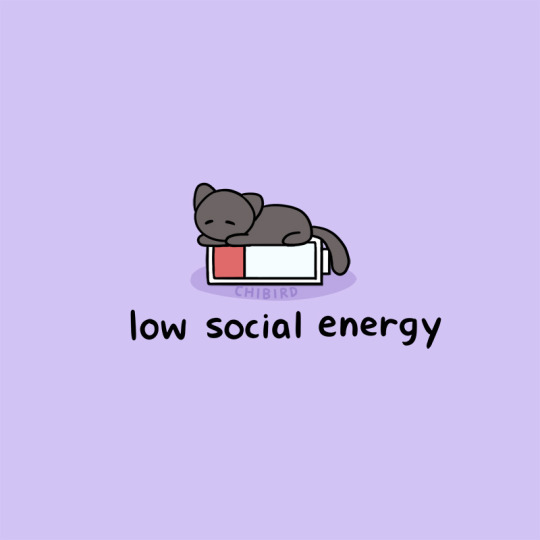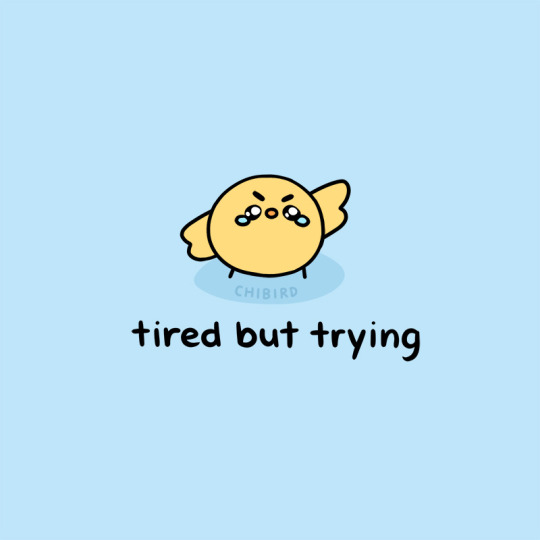#Social
Text


OLIVIA RODRIGO via TikTok (April 6, 2024)
#olivia rodrigo#oliviarodrigoedit#orodrigoedit#usermusic#usermusicdaily#popularcultures#wonderfulwomendaily#flawlesscelebs#dailywomen#femaledaily#userladiesblr#usersource#useroptional#chewieblog#userbbelcher#gifs#social#*courtney#*
103 notes
·
View notes
Text


zayn: Alienated 👽
Leave it all with a laugh
41 notes
·
View notes
Text

Fuck me from behind
Reblog for a spicy pic
#beautiful#beauty#legs#beautiful body#big bootie#bootie peach#cutie w a bootie#smile#hot as fuck#18+ content#i sell content#sexy content#spicy content#social media#sharing#content creation#selling#social
4K notes
·
View notes
Text



Small relatable buddies. I’m tired but trying my best!
Chibird store | Positive pin club | Instagram
3K notes
·
View notes
Text


SABRINA CARPENTER via TikTok (December 6, 2023)
#sabrina carpenter#scarpenteredit#sabrinacarpenteredit#usermusic#usermusicdaily#popularcultures#wonderfulwomendaily#flawlesscelebs#dailywomen#femaledaily#userladiesblr#usersource#useroptional#chewieblog#userbbelcher#social#2023#gifs#ours#gifs*
2K notes
·
View notes
Text


Fearless Social Confidence: Strategies to Live Without Fear, Speak Without Insecurity, Beat Social Anxiety, and Stop Caring What Others Think - Patrick King book notes
Socially confident people:
expect to be accepted. When they meet strangers, they expect to make a good impression. They never approach situations thinking, “What if they don’t like me?” Instead they think, “I hope I like them.”
evaluate themselves positively. Socially confident people are encouraging, positive, and accepting of themselves. They give themselves leeway not to be perfect and don’t beat themselves up too harshly when they are not.
feel comfortable around superiors. Socially confident people feel comfortable because they don’t feel threatened, or that their flaws and vulnerabilities will be highlighted by the other person’s qualities.
With a lack of social confidence, you are usually choosing the thought that is cruelest to yourself.
when navy SEALs recognize that they are feeling overwhelmed, they regain control by focusing on their breath—breathing in for four seconds, holding for four seconds, and then out for four seconds, and repeating until you can feel your heart rate slow down and normalize.
Core beliefs:
Steps in a thought diary entry can be arranged in the easy-to-remember A-C-B format—
Activating Event. Note down the event/ situation. This is simply the origin point of your emotional change. It’s whatever caused your emotional status to change from calm to agitation (a memory, a song, etc).
Consequences. In this step you identify the specific emotions and sensations that arose. These could be simple feeling words— “anxious,” “unhappy,” “sickened,” “panicky,” “melancholy,” “confused,” and so forth.
Beliefs. This is where the action begins. How do you link the activating event with the consequences? What unconscious narrative or story about yourself was told to achieve the consequence? (“What was I thinking?” “What was going through my head when this happened?” “What’s wrong with that?”“What does this all mean?” “What does it reveal about me?”)
Now you’ve gotten to the bottom of your situation and figured out what your core beliefs are.
The first step is writing down one of the core beliefs you’ve just uncovered. Ask yourself what experiences you’ve had that prove your core belief wasn’t always true. Generate as many experiences as you can and be very specific about what happened.
Write down the core belief you’re examining. Think of ways that you can put that belief to the test. These are actual tasks that you can perform. Then, write down what you expect or predict will happen after conducting these tasks if your core belief was true. Perform the tasks. Write down what really happened after you completed your task. Compare and contrast your predictions with what actually happened. Finally, document what you learned from the task and come up with a new, more reasonable core belief that goes in line with your discoveries.
Bushman’s results imply that sometimes the best course of action after being provoked to anger is to just sit quietly and let it pass.
There’s a direct link between social anxiety and negativity. A 2016 Australian research study showed that “elevated social anxiety vulnerability is characterized only by facilitated attentional engagement with socially negative information.” Obsessing over negative details—including by constantly talking about one’s problems—only reinforces one’s social fears and does nothing to inspire real confidence in a social setting.
Personalization is the mother of guilt. In the cognitive distortion of personalizing, you feel responsible for events that cannot conceivably be your fault. While it is admirable to take responsibility for your actions, there are things completely out of your control: the subway schedule, other people’s actions, and a million day-to-day factors.
Common cues of overgeneralization are “always” and “never.” When starting a sentence or a thought with “always” or “never,” consider whether you have the experience or evidence to back up the statement.
Other people aren't only what they are showing to the world. Most people put on a good show. But do you really know what might be going on in their private life? Take comfort from the fact that while there will be many people who are better at certain things than you are, there are also most certainly things that you will be better at.
If you are self-conscious and worried that people will judge you if you say something stupid or “off,” there's an easy workaround to that. The best approach is simple preparation. Create answers to predictable questions and conversations. Run that mental videotape in your mind about your past 10, 20, or 30 social conversations. I guarantee they are not all that different from each other.
Figure out the general questions that people will ask and the topics that will come up in normal conversation and be prepared with story-answers. For example, How was your weekend? What are you doing this weekend? How was your day? What do you do for work?
How can we ease ourselves into social confidence little by little?
List the social situations you avoid. Ask yourself what kinds of gatherings or circumstances you steer clear of and write them all down in a list. Your list should include both physical situations—parties, family gatherings, work presentations, and so forth—and personal experiences that you don’t want to face.
Give each situation a SUDS level from 0 to 100.
Plan your goals.
Build your goal stepladder. You’ve planned a goal and have decided to start work. Remember, situational exposure is a bit-by-bit process.
#powerful woman#c suite#ceo aesthetic#personal growth#strong women#productivity#that girl#getting your life together#balance#Book#social#social anxiety#confidence#speaking
2K notes
·
View notes
Text


This was yesterday.
They literally stole the dude’s idea though.
#free palestine#palestine#democrats#israel#antisemitism#islamophobia#politics#usa#books#germany#war crimes#ww2 history#social#social media#Gop
1K notes
·
View notes
Text
How to start building your social village--
How do you go from isolated to being apart of a properly connected social circle?? How do I go from that isolated individual to an actually connected person without having to force myself out to be a regular at a club or something??
Pick the most used social media across all your connections (for my this is sadly Facebook but I'm sure you could do this through discord or some other site I'm like 90% sure this is transferable in some formate maybe other ppl could pitch those ideas tho-) and then add everyone you know! And here's the fun stuff you could do in your group!
Functional ideas Village Group for-
Offer to swap babysitting/chores/errands or even buddies for these things
Offer to exchange sale/coupon/bulk buying info (A good example of this is a have a friend who knows a butcher and so her family once every 2 months bulk orders from him directly and it'd WAY cheaper for everyone)
Holiday organizing
Dinner party ideas/hang outs (know 2 or more ppl who like sewing? Organize a dinner once every few months and watch a movie and sew! Do a book club!)
Trade/swap/leading stuff (ex tools, books, unused snacks, boardgames, clothes, etc..)
Offer to be apart of a shared calander (I use Cozi personally but again use your preferred)
Event spamming (community event sharing bc no one ever gets proper info on them in time)
Plant swaps (I personally know like 3 different plant ppl who specialize in different types of plants ex 1 person does a lot of herbs and another does all succulents and another does super well with berries and they always wanna get rid of the babies or spread the spoils)
Organizing work parties (repair parties ex fences/roofs/, bulk cooking parties ex my families perogie parties, tax prep parties, hair dying get togethers, etc..)
Fun ideas for village-
Make a village badge/crest of some kind (at one point was making badges for dinner parties as gifts so this is an easy one for me)
Funny pet photos/meme dump ground
This allows for a pretty fun way to also make ppl feel connected. If I get to know someone fairly well like my neighbor or another parent from my kiddos school- I'll just add them to my weird little club thing! Here's a patch for you. Your family now!!
#sprout guide#social#community#community building#solarpunk#hopepunk#is this anything??#cottagecore#ref#anarchy#gift economy#sleepover saturday
2K notes
·
View notes
Text


DUA LIPA via Instagram (January 27, 2024)
#dua lipa#dualipaedit#dlipaedit#usermusic#usermusicdaily#popularcultures#wonderfulwomendaily#flawlesscelebs#dailywomen#femaledaily#userladiesblr#usersource#useroptional#chewieblog#userbbelcher#social#2024#gifs#op#og
723 notes
·
View notes
Text
I had to share this cause it was hilarious

3K notes
·
View notes
Text
I've seen a lot of posts bringing attention to the devastating earthquake that hit Turkey and Syria, but with a focus mainly on Turkey, so allow me to talk about Syria.
The earthquake hit several areas of Syria (Aleppo, Idlib, Latakia, Hama, and Tartus) that were already devastated by war over the past 13 years. As of me writing this post, there are over 1700 people dead in Syria alone, and hundreds injured and wounded, not counting people still stuck under the rubble. I'm too emotionally drained to try to appeal to people's humanity, but please take a moment to look through the following sources of Syrian people reporting directly from Syria, and help if you can.
Syrian accounts reporting Syrian news in English and Arabic:
mashrouwanabqa
mysyria_
Post with some resources to help
And some western news articles to confirm what I'm saying:
News article with campaigns and organisations to donate to
Same news and places to donate from the New York Times
And perhaps most importantly, I ask you to read up on sanctions on Syria and educate yourself on the slow, painful genocide Syrians are suffering at the hand of Western countries. No electricity, gas, or medicine reaching the Syrian people for 13 years now. No economy allowed to flourish. No hope for the Syrian people under these sanctions to survive normal every day life or a cold winter, let alone disaster of this magnitude. There's a campaign to stop the sanctions on Syria, but it's led by Syrians when we are the least able to affect this type of change. Read on it. Talk to your representatives if you can and demand for sanctions to be dropped and help put stop to this. Just look through the Syrian accounts I linked for more perspective. Thank you.
5K notes
·
View notes
Text


OLIVIA RODRIGO via Instagram (February 21, 2024)
#olivia rodrigo#oliviarodrigoedit#orodrigoedit#usermusic#usermusicdaily#popularcultures#wonderfulwomendaily#flawlesscelebs#dailywomen#femalestunning#femaledaily#userladiesblr#usersource#useroptional#chewieblog#userbbelcher#*#*courtney#social#edits
1K notes
·
View notes
Text
"Is social media designed to reward people for acting badly?
The answer is clearly yes, given that the reward structure on social media platforms relies on popularity, as indicated by the number of responses – likes and comments – a post receives from other users. Black-box algorithms then further amplify the spread of posts that have attracted attention.
Sharing widely read content, by itself, isn’t a problem. But it becomes a problem when attention-getting, controversial content is prioritized by design. Given the design of social media sites, users form habits to automatically share the most engaging information regardless of its accuracy and potential harm. Offensive statements, attacks on out groups and false news are amplified, and misinformation often spreads further and faster than the truth.
We are two social psychologists and a marketing scholar. Our research, presented at the 2023 Nobel Prize Summit, shows that social media actually has the ability to create user habits to share high-quality content. After a few tweaks to the reward structure of social media platforms, users begin to share information that is accurate and fact-based...
Re-targeting rewards
To investigate the effect of a new reward structure, we gave financial rewards to some users for sharing accurate content and not sharing misinformation. These financial rewards simulated the positive social feedback, such as likes, that users typically receive when they share content on platforms. In essence, we created a new reward structure based on accuracy instead of attention.
As on popular social media platforms, participants in our research learned what got rewarded by sharing information and observing the outcome, without being explicitly informed of the rewards beforehand. This means that the intervention did not change the users’ goals, just their online experiences. After the change in reward structure, participants shared significantly more content that was accurate. More remarkably, users continued to share accurate content even after we removed rewards for accuracy in a subsequent round of testing. These results show that users can be given incentives to share accurate information as a matter of habit.
A different group of users received rewards for sharing misinformation and for not sharing accurate content. Surprisingly, their sharing most resembled that of users who shared news as they normally would, without any financial reward. The striking similarity between these groups reveals that social media platforms encourage users to share attention-getting content that engages others at the expense of accuracy and safety...
Doing right and doing well
Our approach, using the existing rewards on social media to create incentives for accuracy, tackles misinformation spread without significantly disrupting the sites’ business model. This has the additional advantage of altering rewards instead of introducing content restrictions, which are often controversial and costly in financial and human terms.
Implementing our proposed reward system for news sharing carries minimal costs and can be easily integrated into existing platforms. The key idea is to provide users with rewards in the form of social recognition when they share accurate news content. This can be achieved by introducing response buttons to indicate trust and accuracy. By incorporating social recognition for accurate content, algorithms that amplify popular content can leverage crowdsourcing to identify and amplify truthful information.
Both sides of the political aisle now agree that social media has challenges, and our data pinpoints the root of the problem: the design of social media platforms."
And here's the video of one of the scientsts presenting this research at the Nobel Prize Summit!
youtube
-Article via The Conversation, August 1, 2023. Video via the Nobel Prize's official Youtube channel, Nobel Prize, posted May 31, 2023.
#social media#misinformation#social networks#social#algorithm#big tech#technology#enshittification#internet#nobel prize#psychology#behavioral psychology#good news#hope#Youtube#video
452 notes
·
View notes
Text

Amber Heard with Jen Robinson via Instagram (October 15, 2023)
714 notes
·
View notes
Text


SABRINA CARPENTER via Instagram (February 5, 2024)
#sabrina carpenter#scarpenteredit#sabrinacarpenteredit#usermusic#usermusicdaily#popularcultures#wonderfulwomendaily#flawlesscelebs#dailywomen#femalestunning#femaledaily#userladiesblr#usersource#useroptional#chewieblog#userbbelcher#social#2024#edits#ours#edits*
656 notes
·
View notes
Text







The Beacon, Amsterdam - Studio Appelo & Lars Goossens
#Studio Appelo & Lars Goossens#architecture#design#building#modern architecture#interiors#house#minimal#cool design#fireplace#chimney#timber#wood house#brick floor#community center#social#landscape#timber frame#amsterdam#netherlands
392 notes
·
View notes